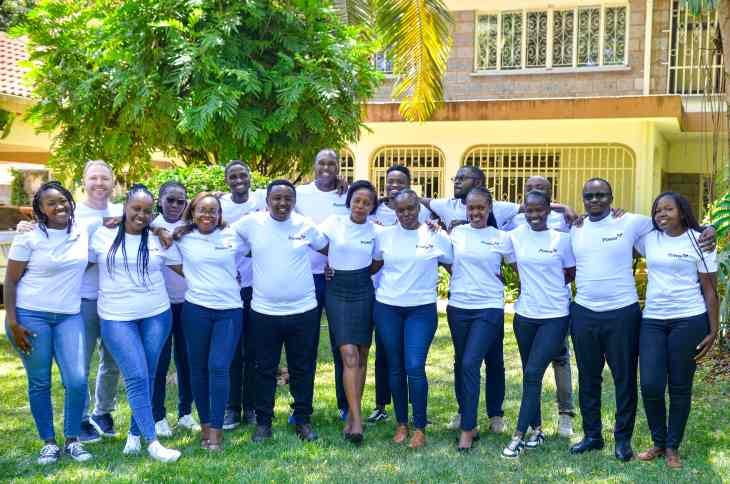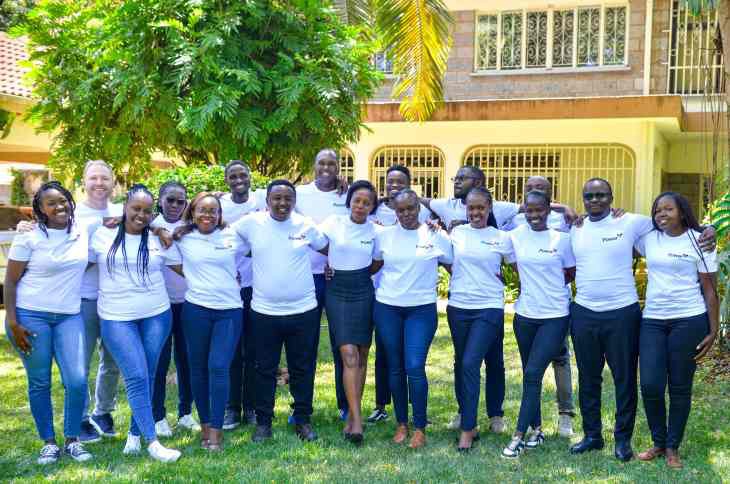Kenyan Fintech Startup Power Financial Wellness Raises $3M In Seed Funding Round
Kenyan microlending business Power Financial Wellness has acquired $3 million in seed capital and is expanding into Zambia. In addition to Bolt by QED Investors, Quona Capital, Zephyr Acorn, and Norrsken Accelerator, DOB Equity also participated in the round.
According to Dempsey, the launch of Power was influenced by trends he saw in the microlending industry and knowledge he had gained from his time working in the microfinance industry.
Read also Central Bank Of Tunisia Launches A New Sandbox Licensing Regime. Fintech Startups Not Welcome
“During my time at the micro-finance institutions I noticed that close to 65% of workers that banked with us would spend all of their money in the first five days of the month. And then they go on to access expensive microcredit [from loan apps], which left them struggling from a financial health perspective,” said Dempsey, Power co-founder and CEO. “This is what informed the launch of Power. We focus on helping workers access affordable and appropriate financial services.”

A Look At What The Startup Does
After spending seven years working in the African microfinance industry, including at Letshego in Botswana, Brian Dempsey took a break in 2020 to found Power, which is based in Kenya.
Employees of the startup have access to both short- and long-term loans, chances for investment, and insurance products. In contrast to other microlenders, it only lends to employees and independent contractors (gig workers) of businesses they have on-boarded on their platform, decreasing the risk of defaults and guaranteeing that borrowers access monies that they can repay.
The startup has signed up 75 businesses in Kenya thus far, giving it access to over 40,000 employees, of whom it has been able to serve 15%.
Read also Kenyan AI and Blockchain Startup Fastagger Raises Funding From Swiss VC Firm
“We integrate to their payment or payroll system allowing their workforce to download the Power app. We then conduct digital identity checks, and open up our four key services to them,” said Dempsey, who co-founded Power with Chandra Singh in 2020. “Once we connect into a company, we already know how much the individuals are earning, how long they’ve worked there. We know whether they’re full-time, part-time contractors or gig workers. We connect into the credit bureau in real time to pull information on other facilities they might have in the market. And we use all that information to then provide a unique amount, interest rate and loan tenure for workers.”
Employees at Power have access to long-term loans depending on their earnings that are available for 2–3% interest per month and can access a portion of their wages in advance. HR can access, accept, or reject employee loan requests using the platform.
Additionally, people can buy different insurance products, pay for them over a long period of time with the same interest, and gain access to partner company packages that demand lump-sum payments.
The money-market and pension funds, into which a predetermined portion from their wages is invested, are also introduced to people enrolling in the investing service.
“Basically, it is a deduction at source meaning that everything that we offer to the workers gets deducted from their earnings before it hits their current account,” he said.
Since its founding, the firm has already granted loans totaling more than $1.5 million. 250 enterprises in Kenya are expected to be affected.
Power recently signed a contract with a southern African bank to launch its newest strategy, and it has also extended to Zambia where it intends to be a technology partner rather than an active lender.
“In southern Africa, we have a bank partnership in Zambia, Malawi, Mozambique, Botswana and Zimbabwe. We’re starting in Zambia. And what we are trying to look for in our partners is a typical bank that is banking a lot of companies, corporates or SMEs but not really banking a lot of retail consumers but have strategic intent to expand their offering and grow their loan book and deposit-based savings,” he said.
He claims that they intend to keep working with banks and utilising technology to expand the breadth of services they can provide to employees and completely upend the market. Over the next three years, Power plans to expand to at least 10 African markets.
Power Financial Wellness Power Financial Wellness
Charles Rapulu Udoh

Charles Rapulu Udoh is a Lagos-based lawyer, who has several years of experience working in Africa’s burgeoning tech startup industry. He has closed multi-million dollar deals bordering on venture capital, private equity, intellectual property (trademark, patent or design, etc.), mergers and acquisitions, in countries such as in the Delaware, New York, UK, Singapore, British Virgin Islands, South Africa, Nigeria etc. He’s also a corporate governance and cross-border data privacy and tax expert.
As an award-winning writer and researcher, he is passionate about telling the African startup story, and is one of the continent’s pioneers in this regard

